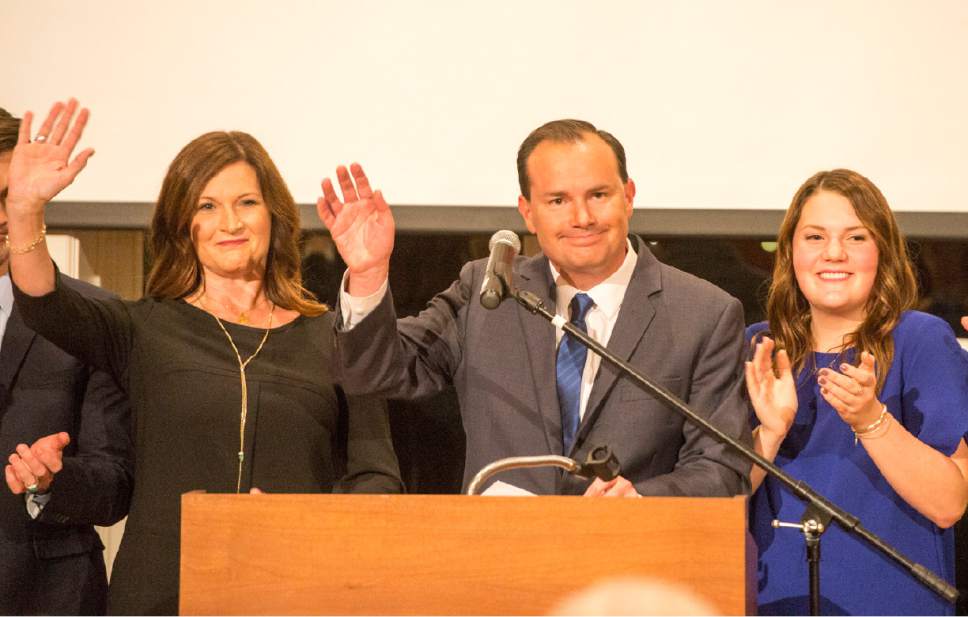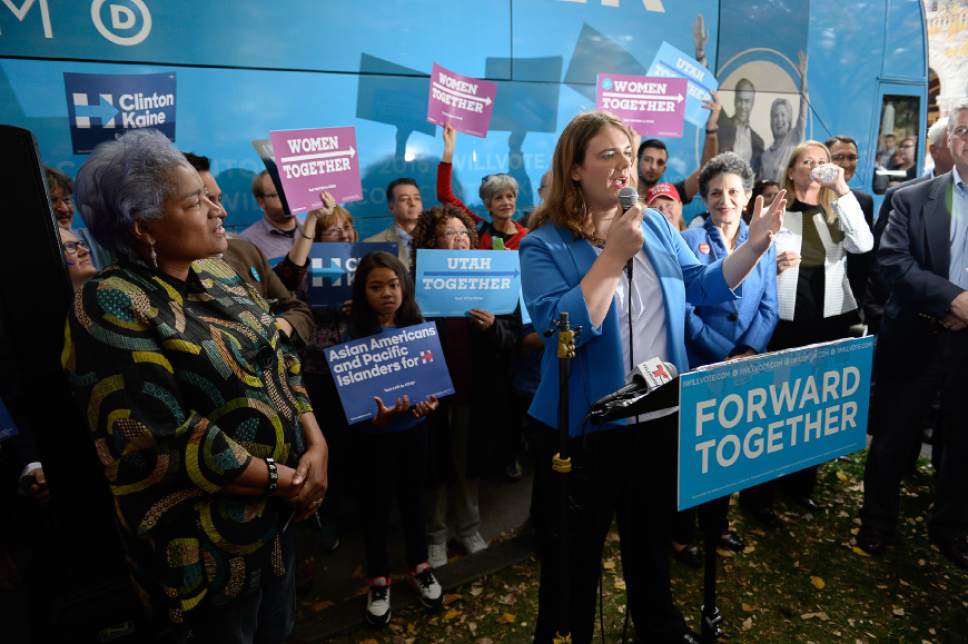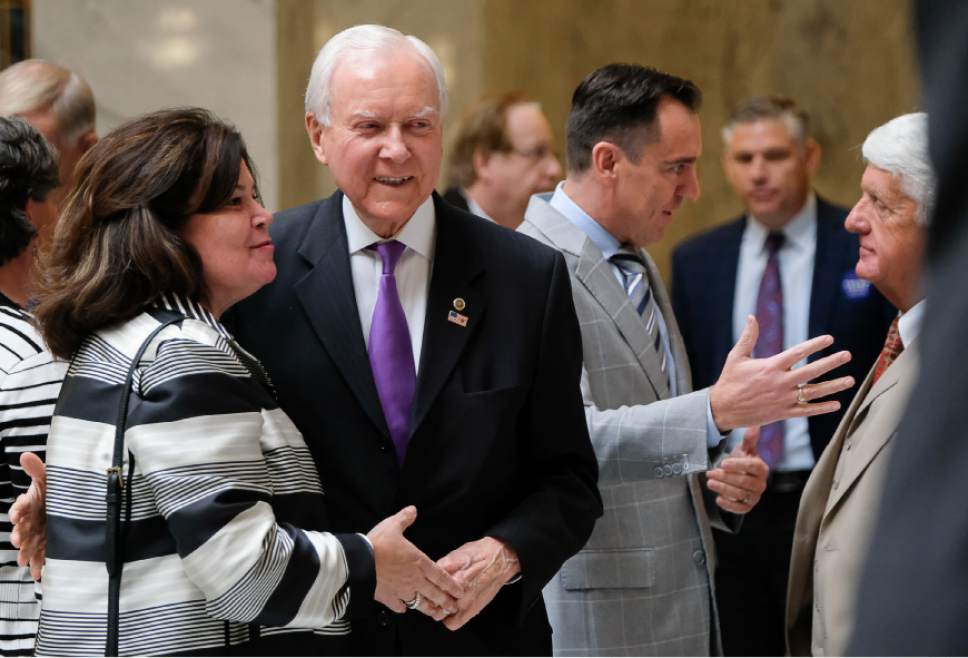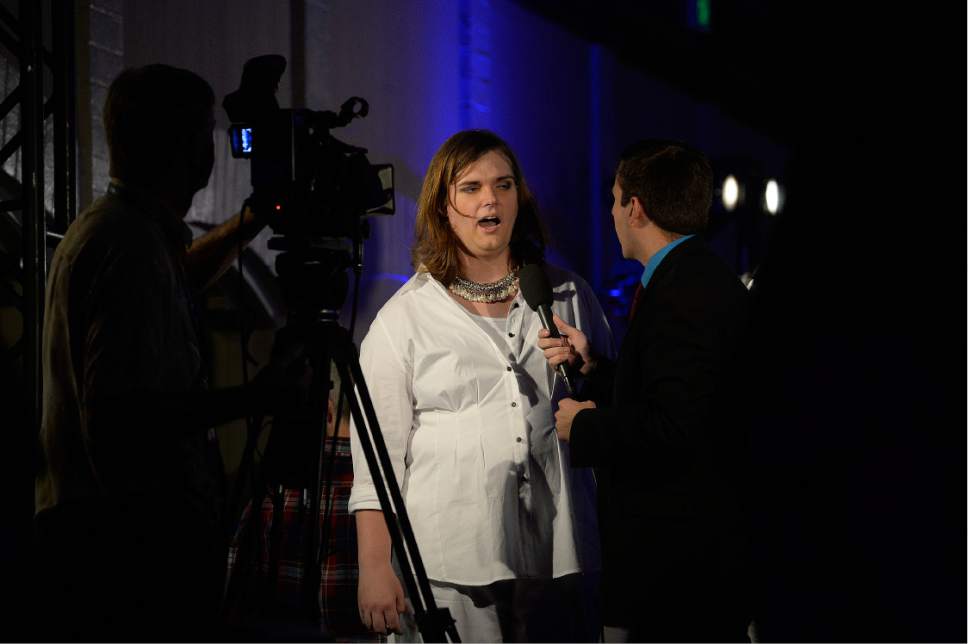This is an archived article that was published on sltrib.com in 2016, and information in the article may be outdated. It is provided only for personal research purposes and may not be reprinted.
Washington • Republicans clung to the Senate majority Tuesday, though with a razor-thin edge that is likely to extend the gridlock in the chamber.
Sen. Mike Lee rolled to a second term in Utah, racking up 68 percent of the vote to Democrat Misty Snow's 27 percent, according to unofficial returns early Wednesday.
Snow nonetheless made history as the first transgender U.S. Senate nominee from a major party.
Lee touted his victory as part of an effort to take back power from the "large, distant" federal government and return it to the people.
"That means with all the people, especially those families and those communities that have been left behind by Washington's broken-down, dysfunctional status quo," Lee said at a victory party. "So what we need is a new principle type of populism to reform Washington and break up the broken-down status quo in Washington."
Democrats picked up one seat for sure Tuesday with Rep. Tammy Duckworth defeating Sen. Mark Kirk in Illinois and held on to retiring Senate Democratic Leader Harry Reid's seat with the election of Democrat Catherine Cortez Masto.
Democrats failed to knock off GOP Sens. Marco Rubio in Florida or Richard Burr in North Carolina. New Hampshire's Senate race appeared to be headed for a recount.
Republicans hold a 54-seat majority in the chamber, and Utah's two senators enjoy plum roles when the GOP controls the chamber.
Sen. Orrin Hatch will keep his chairmanship of the powerful Senate Finance Committee as well as his role as Senate president pro tempore — along with its bump in pay, ceremonial duties and office and an around-the-clock security detail. Lee heads the Senate Steering Committee, a policy body for the Republicans.
With Congress remaining in GOP hands — the Republicans retained their majority in the House even after losing several seats — it's likely gridlock in Washington will stretch into next year.
"The only thing that helps the Democrats is if they control both chambers," said Julian Zelizer, professor of history and public affairs at Princeton University.
Republicans have run the Senate for two years with a four-seat majority. Under the chamber's rules, it takes 60 votes to push through legislation and most nominations for a vote. As long as that rule sticks, it hampers any party without an outsized majority.
"If the margin is one or two senators on either side, that indicates it will be difficult to get controversial legislation through the Senate," said Peter Brown, assistant director of the Quinnipiac University Poll, who notes that some issues could attract senators across the aisle but it's unlikely any of them would be hot-button topics.
Back in Utah, Snow may have lost her Senate bid but she broke ground for the lesbian, gay, bisexual and transgender community, drawing international media attention. In campaigning, Snow said she wanted to be an example that anyone could run for office and modeled herself in the vein of liberal icon Sen. Bernie Sanders, I-Vt., in working to bolster the middle class.
"One thing I always want everybody to remember about my race is that it doesn't matter what you look like, where you're from, what your background is, what your education level is," Snow told supporters Tuesday night.
"You can make a difference in your community."
As for Hatch, who backed GOP presidential nominee Donald Trump but focused on raising money to elect fellow Republican senators — including giving close to a million dollars from his campaign accounts to party committees or senators' bids — hasn't decided whether he will seek an eighth term, those close to the senator say.
Keeping GOP control of the chamber, they add, may influence the senator's thinking but won't be a determining factor.
The senator had said in his 2012 campaign that he was not going to run again, though has walked back from that vow since then.
— Zoe Woolf McGinn contributed to this report

























